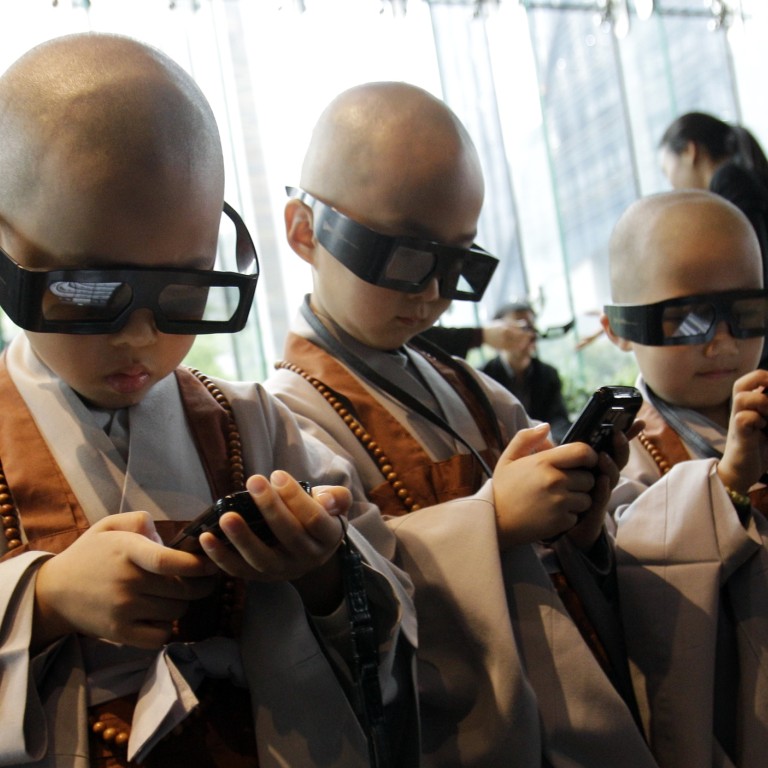
Why giving smartphones to five-year-olds isn't such a bright idea
Kelly Yang says parents need to resist the temptation to give young children their own phone and instead let them go out and play
With Baidu's entry into children's footwear, soon every step my kids take will be traceable through my phone. I can't decide if that's a really neat idea or a great tragedy. As it is, my phone bugs me all day long, yelling at me to go to sleep, walk more, run up the stairs and eat better. It's like a nagging mother; the only difference is, unlike my mum, I can't lie to it. It knows everything about me. It automatically knows how many flights of stairs I've walked up today. And I can't cheat by taking the lift; it knows that too.
Is it just me or have our phones taken over our lives? There's an app now that alerts us when our baby has wet its nappy. There's even an app that allows a guy to predict his girlfriend's mood by inputting her monthly cycles. He can add multiple women, and the app will alert him whenever a woman is likely to be mad at him. If he wants to break up with one, he can just use the BreakupText app, which sends a message that says something like: "Sorry, yo, I'm just not diggin' this. Peace."
The other day, I watched a parent struggle to remember his child's birthday. "Hang on. Let me just go on Facebook and check," he said, pulling out his phone. Children think this is all very funny, of course, and can't wait to get a piece of it. Over the past two years, researchers say, children have been getting phones at younger and younger ages. Last year, a major US mobile phone carrier, Sprint, marketed cellphones to kids as young as five. They say it's because many children become fluent with a touch device or tablet by the time they're three.
Fluent or not, that's still much too young. The idea of a five-year-old walking around, Facetiming his friends, is just plain sad. There's so much to be gained from not getting a phone - less distraction, more privacy, and more time to go out and play in the real world, which is the whole point of being a kid.
This brings us back to Baidu's new children's shoes. According to Baidu, the shoes will encourage children's fitness by allowing parents to track the number of steps a child has taken and the number of calories burnt, in addition to location. If this is indeed all the shoes do, that's fine. Currently, obesity rates in China among children are outpacing those of older age segments. In 1980, just 5.7 per cent of under 20s were overweight, compared with 20 per cent in 2013.
Certainly, if such shoes inspire these 20 per cent to lose weight, that's a great thing. But I can't help but wonder what happens after these kids get home and kick off their shoes. Will they call it a day, or will they run over and grab their parents' phones so they can check out the app? Will they use the app as an excuse to demand their own phone?
In buying hi-tech devices for our children, we parents must not lose sight of the big picture. A few months ago, I talked to Harvard Professor Howard Gardner, who wrote the book . He says we should aim to be app-enabled and not app-dependent. I could not agree more. Children have been playing and exercising long before apps were invented, and they'll do so long after.

